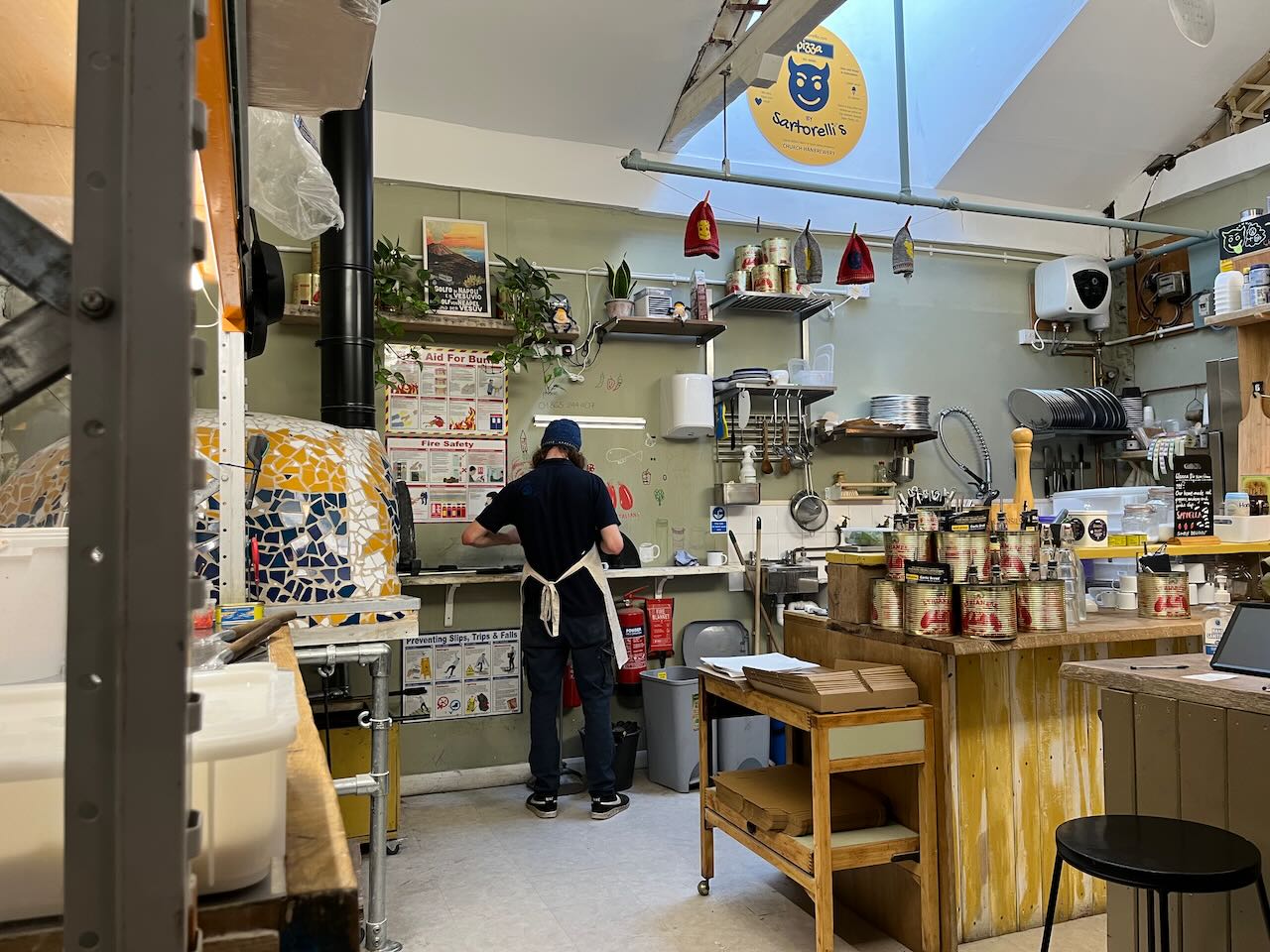‘Breakwater’ is an upcoming feature-length film, produced by Oxford-based Nocturne Productions, and the first film by Oxford University students since Privileged in 1982. The film follows the relationship between Otto, a university student, and John, a retired angler who lives on the coast. Their lives collide and fuse irreversibly over the shared trauma of losing a loved one. However, their tentative romance develops into something more sinister after the past exhumes itself in the form of guilt, grief and ghosts to devastating effect.
What sort of precedent did Privileged (1982) set, and would you like to follow in that precedent or innovate?
Max: We’re working with the people who did Privileged as a team, and they’re helping us with production and with script a great deal as well. It’s a really well shot film, and Andy (Paterson) has been telling us loads of stories about how they did it. Every night they would shoot a roll of film then drive in the evening to the studio to get it processed, then they’d drive back and do another day of shooting, so it was just this constant cycle. When they first came and met with us, they said they were listening to Bruce Springsteen, just as they did when they were on their way to drop the film off at the studio when they were shooting. But before we properly started the project, we knew that ‘Privileged’ was a very Oxford-centric project about this elite group of people. It’s such a cool film, but we were hoping to make Breakwater a bit more independent of Oxford, and differentiate it from quite a lot of student films in a sense by having it pay homage to Oxford, but also to portray Oxford in a slightly different light as well. The film has more depth not only by having the entire second location on the Suffolk coast, where the bulk of the film is set, but also by portraying a relationship between two very different people with varying backgrounds. Production-wise, Privileged started so many careers, Hugh Grant etc, so it would be really cool to know that we’ve given people their first opportunity to get involved in film. But I think in terms of precedent we want to make a good film first, I guess, and see what happens afterwards and hopefully have fun with it.
Jemima: I think also we’re really lucky; their advice guided us through this whole process as well, because I think when we first got into it we were thinking ‘We just need a £5k budget, we just need this etc’, and it’s been rising and rising and rising and that covers having people in the industry helping professionally. What we’re taking on here is a two year project, it’s going to be massive. It’s not your ordinary student film by any means.
My next question, which I think you may have already answered, pertains to important the previous cast and crew of Privileged have been in the inspiration for Breakwater?
Jemima: Andy and Mike (Hoffman) have been absolutely invaluable with the script. They came to this meeting that we had with them with so many notes and it was really cool to hear how they worked. Mike was a Master’s student at Oxford, specialising in Shakespeare, so the whole time we were talking through the script he’d frame it with a Shakespearean reference. And he’d have diagrams and was like ‘This is what happens at this point in Twelfth Night. How does that connect to Breakwater?’. It was really amazing for them to care so much and have so many notes. It was hours of us just chatting with them. At the start they were very intense. They asked Max some hard-hitting questions and he did really well. They were like ‘Describe this film in five words. Give me an example where two people’s narratives in a film together has ever worked.’ It was basically baptism by fire but by the end of it, it was really fun.
Max: The film has definitely become a lot better because of what they did. And we’re constantly sending updates to them as well, so they’re still reading it which is amazing considering how busy they are.
You’ve written an exciting summary of your film on the Indiegogo website, but what do you want the style of the film to achieve?
Max: I think when we originally described it on the Facebook call out for crew, we described it as like Mark Jenkins’ ‘Bait’, set in Cornwall and shot on film, it’s about this fisherman’s struggle against gentrification, and losing a fishing boat. It’s highly stylistic, black and white, and visually I think that’s something we’re aiming for. But in terms of plot, maybe something slightly more psychological. Psychological drama and horror are the sort of genres we’re aiming for. And obviously with Oxford and Suffolk we’re shooting in two visually stunning locations, it’s about the clashing of those two; the smoothness of the golden sandstone and something a bit grittier, salt-encrusted and darker. I think the film is one of self-discovery as you descend into darkness, collapsing into something more sinister as their relationship develops.
Jemima: We’re trying to move way from the whole ‘Oxford’ style because I think a lot of student films like to capitalise on the happiness, romanticism and hedonism of Oxford. This is very much taking quite a stark difference, though at the same time what we’re quite aware of is that we’ve kind of done a really perverse Brideshead. We’ve taken this Brideshead format of our main character becoming a bit of a ‘Charles’ and we’ve just wrecked the idea of what Sebastian is. That, in my opinion, is what the new script is looking like. So we’re paying homage to these Oxford traditions but at the same time mixing them in with some dark stuff.
Again I think you’ve already half-answered this, but very simply what have been your creative influences?
Max: I really like the plays of Robert Holman because he writes about the coast loads. And there’s a play it’s loosely based on called ‘Jonah and Otto’. But I don’t know, because when we first started talking about doing this, it was various groupings of images and developing a plot out of it with massive shifts between what happens. This is really random, but the band ‘Jockstrap’ were a massive influence. I saw a ‘Jockstrap’ concert, and I thought it would interesting to write about the relationship between experimental music and someone radically outside of that and outside of the Oxford sphere. I live close to where we’re filming so I have a lot of memories there, and I think that’s partly something to do with it and something to do with the fact that we can film in Oxford. Knowing the area where we’re going to be shooting helps too. That’s something we’re having to grapple with when we make this, because obviously we have a limited budget and not necessarily limited technical capabilities. But we’re still students and we’re working around ‘Who’s going to stay where? How many air mattresses do we need? How are we going to get extras for this scene?’. It’s thinking about how we’re going to move forward with the film whilst bearing stuff like budget and what’s technically feasible in mind. For example, ‘How are we going to light this scene?’, and ‘Where are we going to shoot it?’ has an impact on writing. Recently, our primary filming location burnt down.
Jemima: Two floors just gone! It was our prime location, and it was ‘John’s’ house.
Max: Yeah we were going to stay in my friend’s house and shoot downstairs. It was so antiquated that it wasn’t fireproof and burnt down. Fortunately, we’ve found alternatives but we’re still working with that.
You have your launch coming up on the 27th of October at OXO Bar. What can we expect from that?
Jemima: It’s a way for everyone to meet our cast and crew, and in particular our crew from London. We’ve got our gaffer now so you’ll meet him and our DoP. There’s thirty people in our team so they’ll all be able to meet each other which is amazing. And more importantly everyone from Oxford can come and meet them because we everyone to get to know the crew, especially because we’re going to try and get casting really soon. We obviously want people who are interested in casting to come, we’re going to have ‘Breakwater’ themed drinks like ‘Otto’s drink’, and we’ve got some really exciting raffle prizes from some amazing sponsors. G&D’s is giving us vouchers for Sunday ice cream and we’ve got ball tickets. The raffle, importantly, is going to be an online thing that people can be part of, if they can’t make it to the drinks. It’s completely free to come, we just want everyone to see what the vibe is. We also have merch by our amazing graphics designer Freddie, who also did the poster. It’s really exciting.





